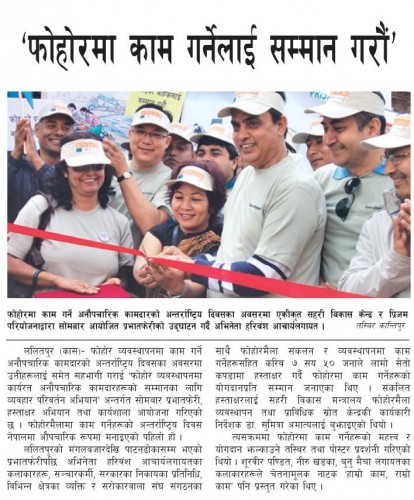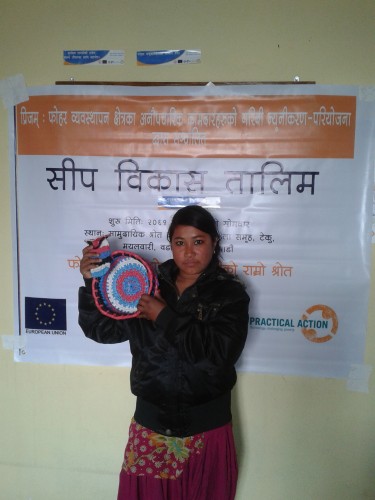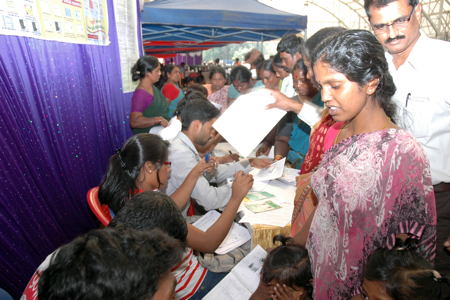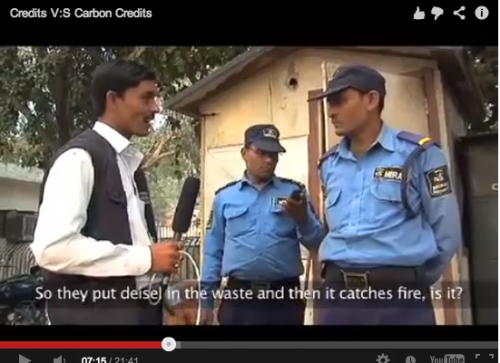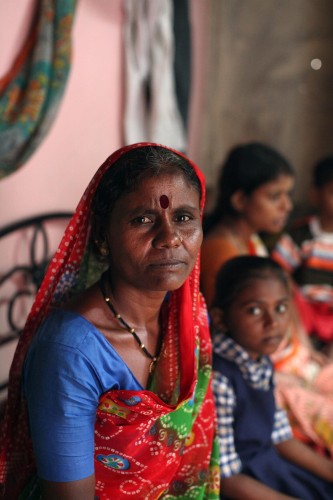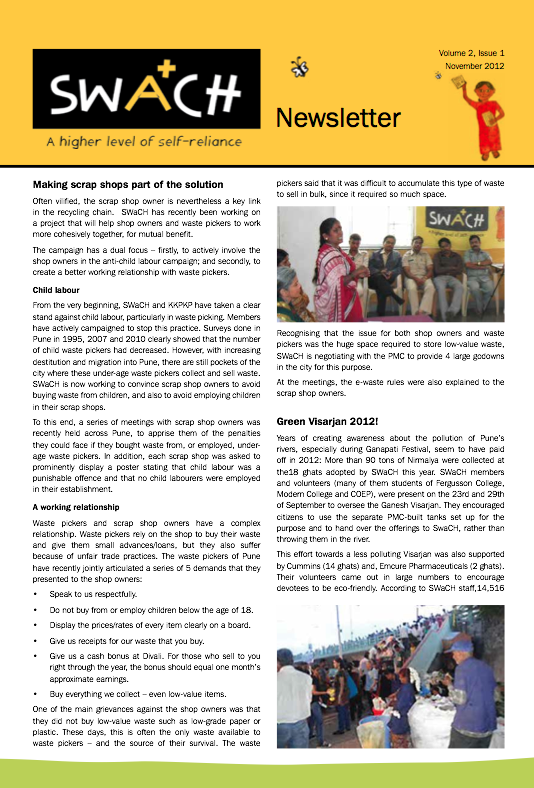
Waste pickers sit-in in Pimpri Chinchwad fight for Minimum Wage
The Pimpri Chinchwad Municipal Corporation (PCMC), India, authorities had been shockingly apathetic to the inhuman treatment to over 400 waste workers employed by its contractor BVG Kshitij. Almost a week ago, the Kagad Kach Patra Kashtakari Panchayat (KKPKP) started a sit-in to protest for this situation.



